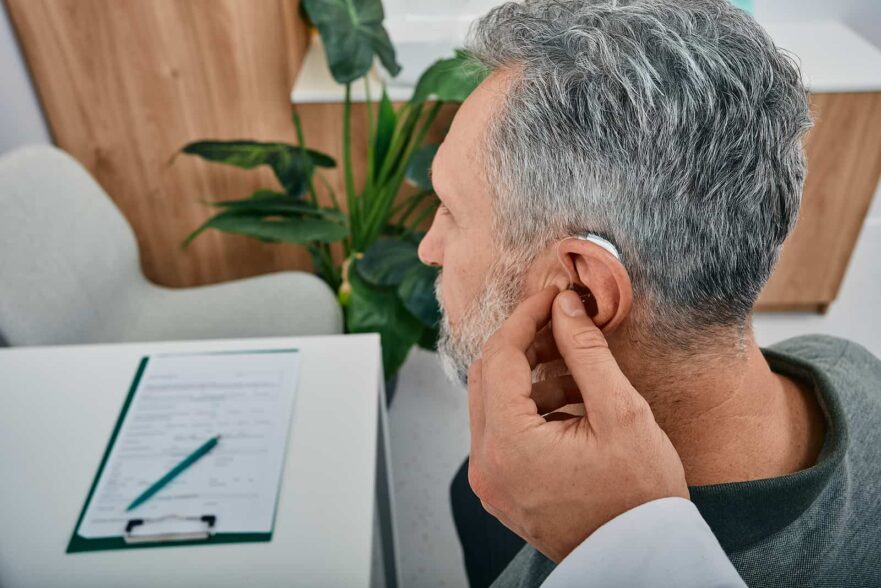So you’ve decided to have a hearing test and get a set of hearing aids. Good for you! Hearing aids are the best treatment for most people’s hearing loss, and they’re better than ever. They’ll help you to stay engaged with the people in your life, and help you to feel more confident, independent, and optimistic!
What Is a Hearing Consultation & Fitting?
A hearing consultation is the intake process at an audiology clinic or hearing care center. It begins with a questionnaire about your lifestyle, medical history, family medical history, and broad questions about any concerns you have about your hearing ability. That is followed up by a conversation with your audiologist or hearing care provider, to get more detailed answers to some of the same questions on the questionnaire. Then, your audiologist or hearing care specialist will examine your ears with an otoscope, and administer a hearing test. The whole test is painless and non-invasive, and only lasts for about a half hour.
After your hearing test, your audiologist or hearing care provider will discuss your hearing issues with you. If they recommend hearing aids, you’ll have a conversation about which hearing aids are likely to work best with your particular hearing needs and lifestyle. Once you’ve chosen a set of hearing aids, you may have a fitting on the same day or at a future date, depending on which hearing aids you choose.
Your audiologist or hearing care provider will help you through the process, but it doesn’t hurt to be prepared! Here are a few tips to keep in mind when you head in for your hearing consultation and fitting.
Leave Plenty of Time
There will be a lot of information to digest, so make sure you have plenty of time to absorb it all. You’ll need to make some important decisions about what kinds of hearing aids you’ll get, how to operate them, how to care for them properly, and what to watch for as you adjust to your new hearing aids. The whole process is likely to take a while, so be sure to set aside a full day.
Bring a Buddy
It’s helpful to have a friend or family member with you at your consultation and fitting. Because there’s so much information to absorb, it’s good to have an extra set of ears with you! They also might help you remember some things that could be useful in determining the times in your routines when hearing loss poses the biggest challenges, which is helpful when choosing the right set of hearing aids, and any add-ons that might provide additional help.
Make a List of Questions
If you think of things to ask in advance, you may not remember them all once you’re in the office. Don’t be afraid to write them down and bring the list with you to make sure you cover everything.
Take Notes
Similarly, it can be helpful to write down parts of the process of maintenance, care, and daily use of your hearing aids. All of these steps will not only help your hearing aids work better for you, but help them last longer!
Ask About Follow-Up Care
It is quite common, in the early weeks of wearing hearing aids for the first time, to require adjustments. This is partly because a fitting performed in the clinical environment of an audiology practice or hearing care center may not meet your needs out in the real world, and partly because the process of adjusting to new hearing aids can mean that your ideal fitting might be uncomfortable at first. Your provider should understand that you may return to the office for follow-up adjustments, and these should typically be free of charge.
Don’t Get Bogged Down With Add-Ons
Some add-ons, like wireless microphones or TV adapters, might be a no-brainer for many people. Others might not take as much advantage of them. Remember that you can always come back for more add-ons if you see a need for them, once you start wearing your hearing aids regularly. What’s important now is that you understand how your hearing aids work, and how the process of adjusting to them might go.

